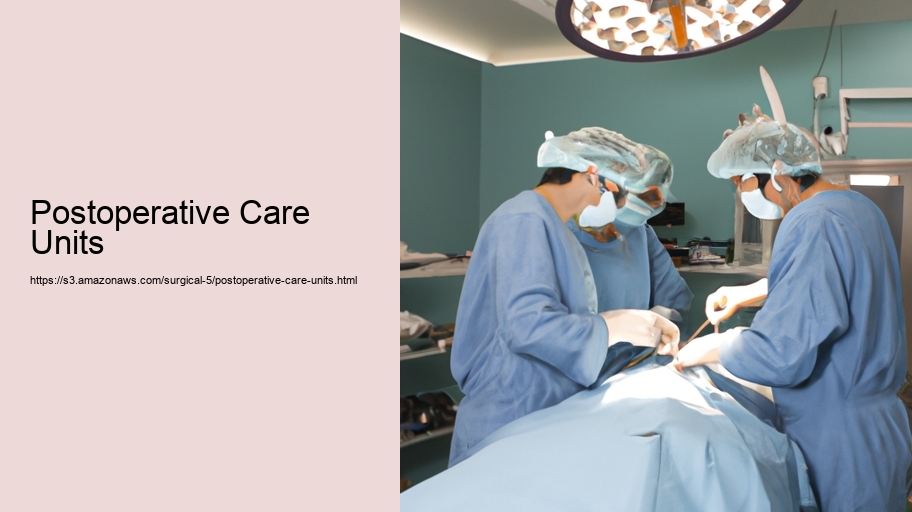Postoperative Care Units: The Backbone of Surgical Recovery
Surgery, regardless of its scale or complexity, is a significant physical intrusion into the human body. It is a deliberate and controlled injury that necessitates a period of healing and restoration. This is where Postoperative Care Units (PCUs) play a crucial role in the healthcare continuum. The period following surgery is critical, and the care provided during this time can significantly influence a patient's overall outcome and speed of recovery.
Postoperative care begins the moment a patient leaves the operating room. As the effects of anesthesia wane, the body starts the intricate process of healing, and PCUs are the environments designed to support this. They are specialized units with a focus on monitoring, managing pain, preventing complications, and providing comprehensive support to patients who have just undergone a surgical procedure.
One of the primary functions of a PCU is to monitor vital signs and ensure that the patient's recovery is proceeding without immediate complications. This involves regular checks of blood pressure, heart rate, respiratory rate, and oxygen saturation. The healthcare professionals in these units are trained to quickly identify signs of distress or deterioration in a patient's condition, such as bleeding, infection, or adverse reactions to anesthesia.
Pain management is another cornerstone of postoperative care. Effective pain control is not just a matter of comfort; it is essential for promoting mobility, preventing deep vein thrombosis, and ensuring that patients can participate in necessary activities like deep breathing exercises and early ambulation, which are vital for preventing complications such as pneumonia or bedsores.
The prevention of complications is an ongoing concern in PCUs. Surgical site infections, respiratory complications, and thromboembolic events are all risks that can be mitigated with diligent care. This includes the maintenance of a sterile environment, encouragement of movement, respiratory support, and, where appropriate, the administration of prophylactic medications.
Nurses and other healthcare providers in PCUs offer emotional support and education to patients and their families. Surgery can be a traumatic experience, both physically and emotionally, and the postoperative period is often when patients are most vulnerable. Healthcare professionals provide reassurance, answer questions, and set expectations for the recovery process. They also prepare patients and their caregivers for the transition to home, which may include instructions on wound care, medication management, and recognition of potential complications.
An effective PCU is characterized by a multidisciplinary approach. Surgeons, anesthesiologists, nurses, physical therapists, dietitians, and, sometimes, social workers, all play a role in a patient's recovery. This team works together to create and implement a care plan that addresses the unique needs of each patient, taking into account the type of surgery performed, the patient's medical history, and any underlying conditions.
Innovation and technology have become increasingly important in enhancing the care provided in PCUs. Advanced monitoring equipment allows for more precise tracking of a patient's condition, and pain management techniques have evolved to provide better relief with fewer side effects. Electronic health records enable seamless communication among the multidisciplinary team, ensuring that all members are informed of a patient's progress and any concerns that may arise.
Ultimately, Postoperative Care Units are a testament to the complexity of healing. They acknowledge that the journey to recovery does not end when the surgery is complete but rather begins from that point. The meticulous care and vigilant monitoring provided by these units are fundamental to ensuring patients have the best possible outcomes, and they reflect the intricate interplay between medical science and compassionate care that lies at the heart of modern healthcare.
